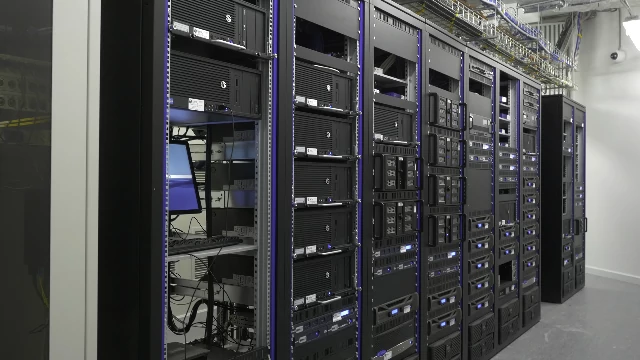A growing number of businesses are creating their own file servers, application development environments, and e-commerce websites by renting servers. Dedicated servers, shared servers, and cloud servers are just a few of the rental server options. It’s possible that some people are unaware of the distinctions between these services.
This post will go into great depth on what a dedicated server is, how it works, how it is different from other services, and how to pick one.
What Is A Dedicated Server?
One user can use one server only with the help of a dedicated server service.
Shared servers and dedicated servers are the two categories of rental servers. The capacity and functionality of shared servers are constrained since numerous users share a single server. Furthermore, the server’s management and operation are under the purview of the service provider.
Dedicated servers, on the other hand, are used only by one user and are therefore very customizable, with a big quantity of RAM and storage.
You might find it simpler to comprehend if you visualize the single-family home depicted in the above diagram. You are free to utilize and alter the space on the property whenever you please. But, if you lack specialist knowledge, you can find it challenging to handle it since you have to make your own decisions based on the design and materials of your home.
Difference with Shared Server
As mentioned earlier, a shared server is a service in which one physical server is shared and used by multiple users.
This is like a shared apartment, where you have your own private living space, but you share the toilet, kitchen, bath, etc., and the CPU and memory are shared by multiple users. When we say “rental server,” we generally mean a shared server.
Benefits of a Dedicated Server
Here we will explain the benefits of a dedicated server.
Dedicated servers offer the following benefits:
- Highly customizable
- Not easily influenced by other websites
Highly Customizable
The first advantage is that it is highly customizable. Because it is a dedicated area, you can freely select middleware, OS, etc. according to your unique needs. Operating systems include Linux servers and Windows servers, and Windows servers in particular can be operated in an environment similar to the Windows PCs you use on a daily basis, and you can streamline your work by using Microsoft applications.
Please note that some companies may have their own security policies, so there may be cases where this cannot be achieved even with a dedicated server.
Not Easily Influenced By Other Websites
Dedicated server also have the advantage of stable operation because they are not affected by other websites like shared servers. If your server goes down due to the concentration of access from other websites, you could lose the trust of the customers you serve. It is difficult to regain trust once lost, so this is something you want to avoid as much as possible.
Disadvantages of Dedicated Servers
Here we will introduce the disadvantages of dedicated servers.
- Initial and operational costs are high
- It takes time to start using it
- It takes time to manage
Initial and Operational Costs Are High
The major disadvantage of dedicated servers is the high initial and operational costs. In general, you can use one high-spec server for exclusive use, so the cost is higher than a shared server that costs several Hunderd dollars per month.
There are various services available from different companies, but the monthly fee is Some Dollars, and in some cases the initial cost is close to $500. Therefore, it is necessary to provide web services and applications that can cover these costs.
It Takes Time to Start Using It
Another important point to keep in mind when using a dedicated server is that it takes time to start using it. Since it takes time to install the server and check its operation, it will take some time from the time you apply until you can actually use the server.
Some services offer shared servers that can be used immediately after application, allowing you to start test operation in as early as 1 to 2 hours. On the other hand, with a dedicated server, there are cases where a grace period of 1 to 30 days is required from the time of application to confirm operation. Be sure to plan your server deployment well in advance.
It Takes Time to Manage
You must be aware that if you do not contract a managed server, a dedicated server will require more effort to manage. Since you need to configure and manage the server yourself, it will be difficult to build and operate the server unless you have engineers with specialized knowledge.
Also, depending on the web service being built, it may affect the resources used on the server, so the person in charge needs to constantly manage the server specifications and resources. Please be aware that failure to properly manage server operations may lead to problems later on, which may result in service suspension.
